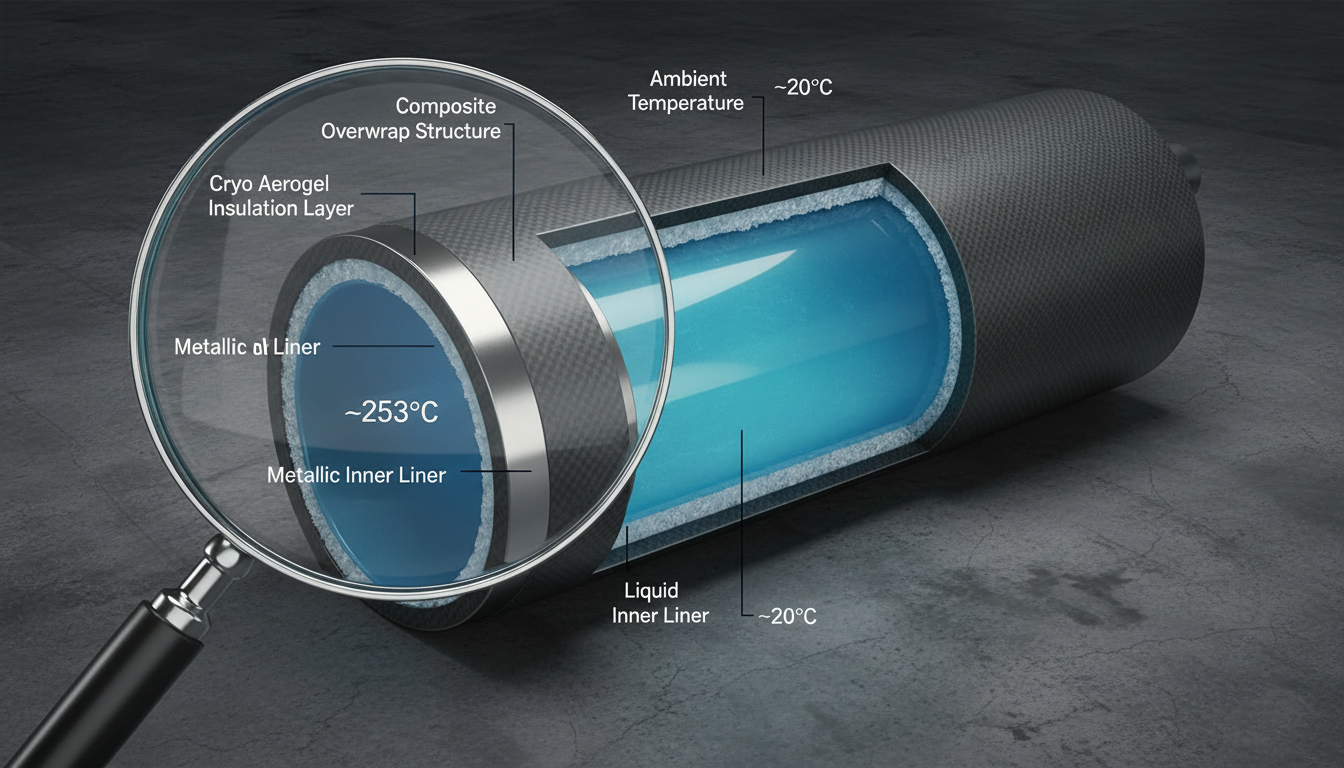Cryo Aerogel
CryoSil-X™
Fiber-reinforced cryogenic silica aerogel with dual-stage hydrophobic treatment, engineered for liquid hydrogen tanks and extreme cold environments. Ultra-low thermal conductivity of 0.012 W/m·K enables revolutionary performance in aerospace, automotive, and industrial cryogenic applications.

Technical Specifications
Industry-leading performance characteristics for the most demanding cryogenic applications.
Thermal Conductivity
Density
Operating Temperature
Compressive Strength
Water Contact Angle
Moisture Absorption
Material Composition
- • Amorphous Silica (SiO₂): 80–85 wt%
- • Hexamethyldisilazane (HMDS): 5–8 wt%
- • Methyltrimethoxysilane (MTMS): 0.5–1 wt%
- • Kevlar® Microfibers (5–10 mm): 5–7 wt%
- • Polyvinyl Alcohol (PVA): 2–3 wt%
Key Applications
Cryogenic Hydrogen Tanks
Lightweight insulation for liquid hydrogen storage in aerospace and UAV systems, enabling longer range and higher payload capacity.
LNG & Industrial Cryogenics
Ultra-efficient insulation for liquefied natural gas transport and industrial cryogenic processes, reducing boil-off losses.
Electric Vehicle Batteries
Thermal management for EV battery systems, protecting against extreme cold and improving cold-weather performance.
Key Benefits
Ready to Integrate Cryo Aerogel?
Contact our technical team to discuss your cryogenic insulation requirements.
Get in Touch